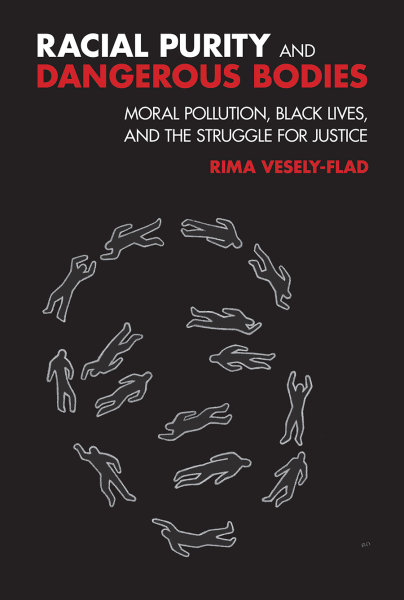“Vesely-Flad’s book helps us see in beautifully precise ways one of the most insidious and pernicious ways of seeing people of color, as pollution and as polluting. In these challenges days, Vesely-Flad has given us exactly what we need: a book that help us see our distorted ways of seeing people. But she does more: she maps a way out of our distorting optic. In time, this will be the book that many an undergraduate will say changed the way they see the world.”
At the center of contemporary struggles over aggressive policing practices is an assumed association in U.S. culture of blackness with criminality. Rima L. Vesely-Flad examines the religious and philosophical constructs of the black body in U.S. society, examining racialized ideas about purity and pollution as they have developed historically and as they are institutionalized today in racially disproportionate policing and mass incarceration. These systems work, she argues, to keeps threatening elements of society in a constant state of harassment and tension so that they are unable to pollute the morals of mainstream society. Policing establishes racialized boundaries between communities deemed “dangerous” and communities deemed “pure” and, along with prisons and reentry policies, sequesters and restrains the pollution of convicted “criminals,” thus perpetuating the image of the threatening black male criminal. Vesely-Flad shows how the anti-Stop and Frisk and the Black Lives Matter movements have confronted these systems by exposing unquestioned assumptions about blackness and criminality. They hold the potential, she argues, to reverse the construal of “pollution” and invasion in America’s urban cores if they extend their challenge to mass imprisonment and the\ barriers to reentry of convicted felons.
- Publisher Fortress Press
- Format Paperback
- ISBN 9781506420493
- eBook ISBN 9781506420509
- Dimensions 6 x 9
- Pages 272
- Publication Date June 15, 2017
Contents
Introduction
1. A Theory of Moral Pollution
2. Constructions of Character and Criminality in the Nineteenth-Century U.S. Penal Systems
3. Institutionalizing Pollution Boundaries: Contemporary Policing, Imprisonment, and Reentry Systems
4. Policing Polluted Bodies in Polluted Spaces: Stop-and- Frisk in New York City, 1993–2013
5. Confronting Pollution: Protest as the Performance of Purity in the Black Lives Matter Movement
6. Seeing Jesus in Michael Brown: New Theological Constructions of Blackness
7. Conclusion: Reconstructing the Image of the Polluted Black Body
Index
Reviews
Review in The Friends Journal
Endorsements
In time, this will be the book that many an undergraduate will say changed the way they see the world.
